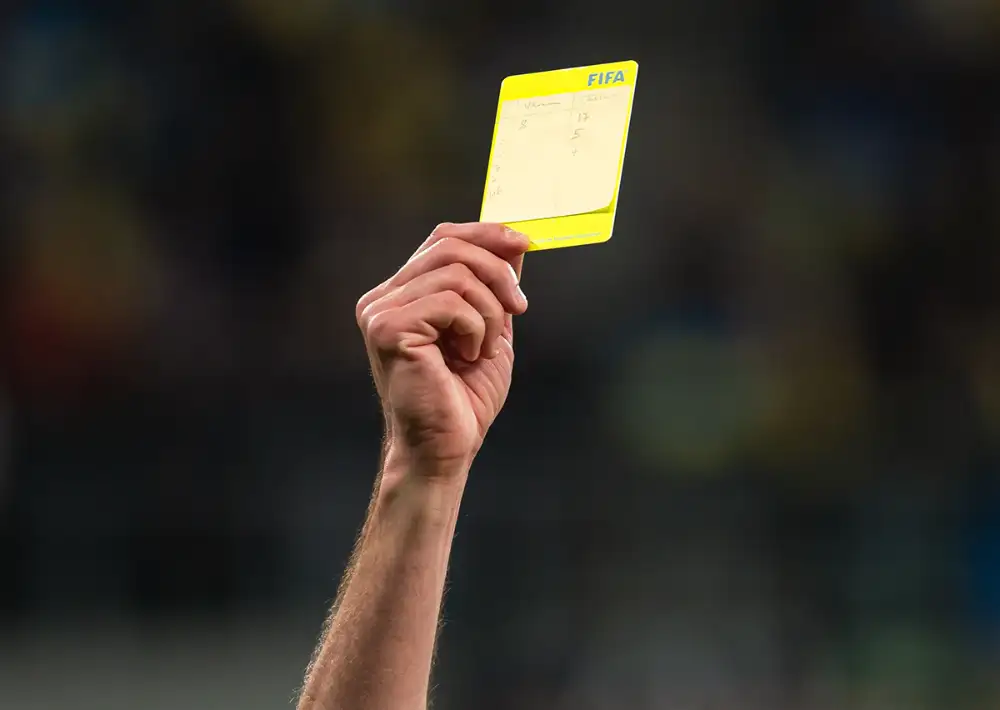Trump’s Cabinet Members Warn FIFA World Cup Visitors Not to Overstay Their Visas: Best Practices for Visiting the U.S. on a B-2 Tourist Visa

As the United States prepares to co-host the FIFA World Cup in 2026 with Mexico and Canada, several former members of the Trump administration are issuing public warnings to international fans: enjoy the tournament, but don’t overstay your visa. Former officials, including Chad Wolf, who served as Acting Secretary of Homeland Security, and Tom Homan, former Acting Director of ICE, have raised concerns about potential visa overstays during the event.
The warning reflects broader concerns about national security and immigration enforcement. With millions of tourists expected to travel to the U.S. for the games, immigration officials are preparing for the logistical and security challenges that come with large-scale international events. Visa overstays have long been a hot-button issue, and former Trump officials have emphasized that the U.S. government will likely track and respond to any increase in violations during this period.
For those planning to visit the U.S. on a B-2 tourist visa—whether for the World Cup or for general tourism—this is a good opportunity to review the rules and best practices for staying in compliance with U.S. immigration law. Understanding your responsibilities as a tourist is key to ensuring a smooth visit and avoiding long-term immigration consequences.
The B-2 visa is designed for temporary visitors traveling to the U.S. for tourism, vacations, medical treatment, or to attend special events like concerts or sports tournaments. It is one of the most commonly issued nonimmigrant visas and allows visitors to stay in the U.S. for up to six months. However, the exact length of your stay is not determined by the visa itself but by U.S. Customs and Border Protection (CBP) upon your entry into the country. The officer at the port of entry will issue an I-94 record indicating how long you are authorized to remain.
It’s important to understand that the expiration date on your visa is not the same as the end date of your authorized stay. The visa simply allows you to enter the country; the I-94 governs how long you may remain. Visitors can check their I-94 online and should monitor that date carefully. Overstaying, even by a day, can have serious consequences.
Penalties for overstaying a tourist visa can include:
- Cancellation of your visa
- Denial of future U.S. visas
- Multi-year bans on reentry (3-year bar for overstays of 180+ days; 10-year bar for overstays of 1+ year)
- Placement in removal proceedings
With the eyes of the world on the U.S. during the World Cup, immigration enforcement is expected to be stricter than usual.
Essential Travel Tips for B-2 Visa Holders
To reduce your risk of issues at the port of entry or during your stay, travelers should take the following precautions:
- Never travel with a one-way ticket. This could raise suspicions that you do not intend to return to your home country. Always purchase a round-trip ticket and carry a printed copy of your travel itinerary to show return plans.
- Bring proof of ties to your home country. Documents like lease agreements, utility bills, car registration, employment verification letters, or property deeds help demonstrate that you plan to return.
- Keep your digital footprint clean. Avoid posting content on social media that could be perceived as politically controversial or contrary to U.S. foreign policy. Immigration officers are authorized to inspect phones and social media activity at the border.
- Check your I-94 after arrival. Make sure you understand how long you are allowed to stay. This record, not the visa, controls your period of authorized presence.
- Don’t work or study. The B-2 visa does not permit employment or enrollment in degree-granting academic programs.
- Apply for an extension early. If you need more time due to unforeseen circumstances, submit Form I-539 before your I-94 expires. Do not wait until the last minute.
- Prepare for questioning. Be ready to explain the purpose of your trip, your planned activities, and where you’ll be staying.
What About Visa Waiver Travelers?
Visitors entering under the Visa Waiver Program (VWP) with an approved ESTA face even stricter requirements. They may stay for only 90 days, with no option for extension. Even short overstays can result in disqualification from using the VWP in the future, forcing travelers to apply for a full visa next time.
A Celebration and a Test
The 2026 FIFA World Cup promises to be a global celebration of sport, culture, and international camaraderie. For the United States, it also represents a significant test of border management and immigration control. Former Trump officials have made it clear that the U.S. will be watching closely for any violations.
Whether you’re a lifelong soccer fan chasing your team from city to city or a family planning your summer vacation, remember: the most important thing you can pack is knowledge. Know the rules of your visa, follow them precisely, and don’t overstay. That’s the best way to ensure your visit is not only unforgettable—but also free of legal headaches down the road.